Panentheism: Books
Further resources, if available, can be found in our full bibliography.
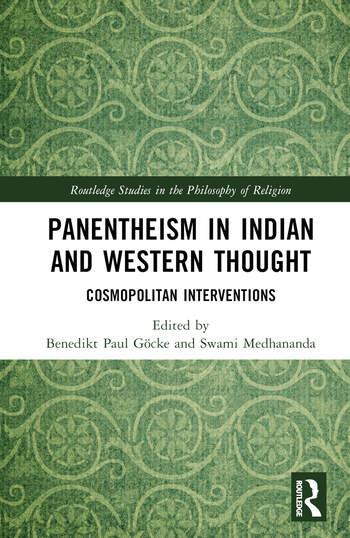
Panentheism in Indian and Western Thought: Cosmopolitan Interventions
Benedikt Paul Göcke, Swami Medhananda
Routledge
2024
For too long, scholars interested in panentheism have focused almost exclusively on Western approaches to the issue. This book offers the first in-depth study of a wide range of Indian paradigms of panentheism, both ancient and modern, and brings these paradigms into creative and constructive dialogue with Western traditions. This volume features original essays written by leading international scholars. The volume discusses a broad range of Indian panentheistic traditions, including the Upaniṣads, Bhedābheda Vedānta, Rāmānuja’s Viśiṣṭādvaita Vedānta, Yogācāra Buddhism, and the Ramakrishna-Vivekananda tradition. The chapters connect these traditions with Western panentheistic conceptions developed by thinkers such as Spinoza, Berkeley, Schopenhauer, Krause, Royce, Tononi and Koch, and Western process philosophers. Panentheism in Indian and Western Thought will be of interest to scholars and advanced students working in philosophy of religion, Indian philosophy, comparative philosophy, and comparative religion.
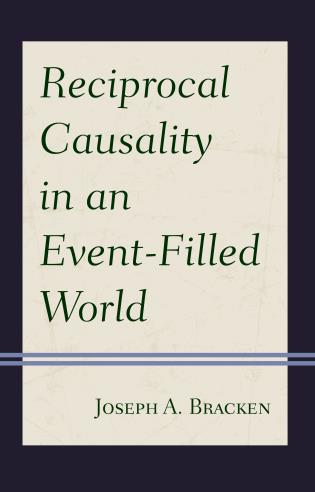
Given the current sense of helplessness in dealing with environmental change and other urgent issues, a new world view is needed that emphasizes the unique contribution that individual citizens can make to the common good as opposed to their individual needs and desires. In a recent encyclical on the environment, Pope Francis set forth reasons from Scripture and Church teaching for this shift in perspective, but he did not provide a philosophically based foundation for this change of heart. To fill that gap, Joseph Bracken examines key writings of process-oriented philosophers like Henri Bergson and Alfred North Whitehead, along with systems-oriented thinkers like Ludwig von Bertalanffy and Ervin Laszlo, to create a systems-oriented understanding of the God-world relation.
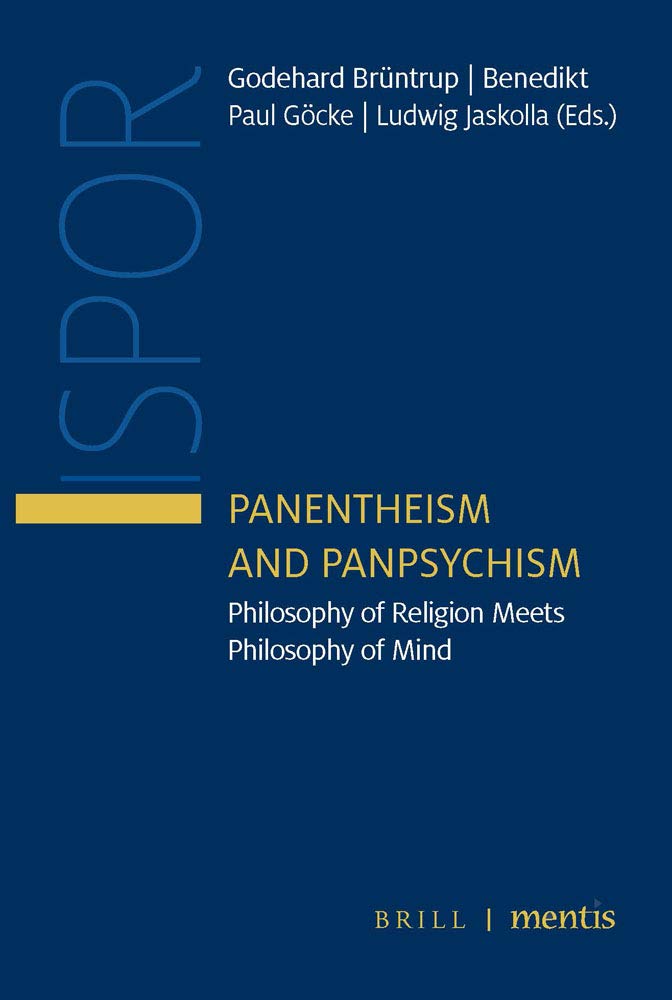
Panentheism and Panpsychism: Philosophy of Religion Meets Philosophy of Mind
Godehard Brüntrup, Benedikt Paul Göcke, Ludwig Jaskolla
Brill
2020
Panpsychism has become a highly attractive position in the philosophy of mind. In panpsychism, both the physical and the mental are inseparable and fundamental features of reality. Panentheism has also become immensely popular in the philosophy of religion. Panentheism strives for a higher reconciliation of an atheistic pantheism, on which the universe itself is causa sui, and the ontological dualism of necessarily existing, eternal creator and contingent, finite creation. Historically and systematically, panpsychism and panentheism often went together as essential parts of an all-embracing metaphysical theory of Being. The present collection of essays analyses the relation between panpsychism and panentheism and provides critical reflections on the significance of panpsychistic and panentheistic thinking for recent debates in philosophy and theology.
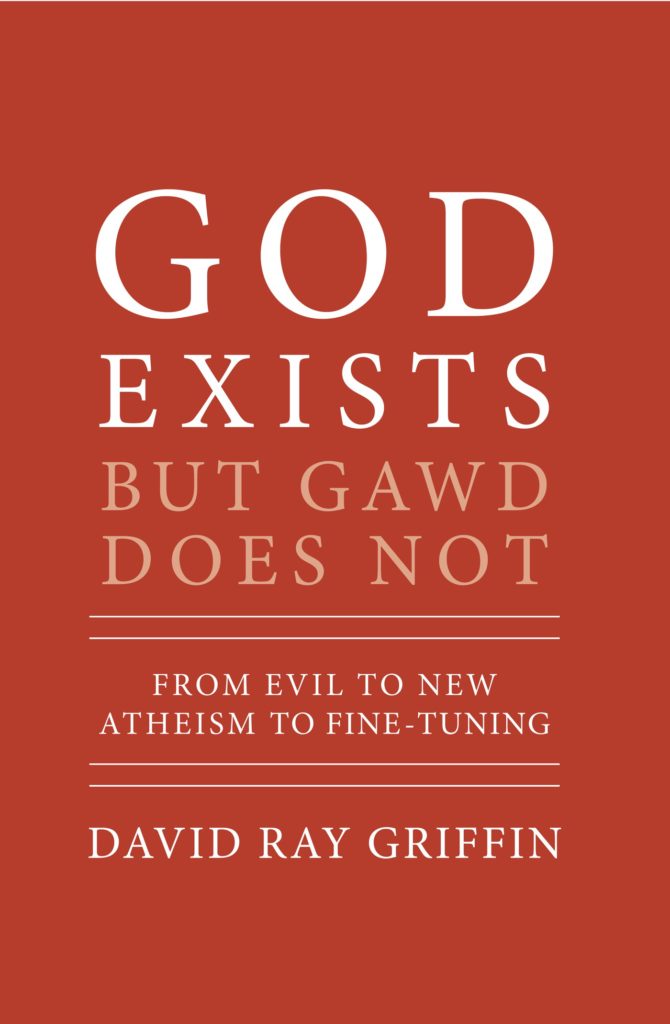
God Exists But Gawd Does Not: From Evil to New Atheism to Fine-Tuning
David Ray Griffin
Process Century Press
2016
“God” has been the most embattled idea in the modern world. The lives of many people revolve around God; without God, they believe, life would be unbearable. Others regard the idea of God as the worst, most destructive idea ever invented. The one group finds the evidence for God overwhelming; the other group finds the same for atheism. The debate has centered around the idea of God as the creator of the world. Many philosophers, theologians, and scientists have assumed that, if humans would simply add up the good arguments for and against the existence of God, they could reach an agreement, one way or the other. But in this book, David Ray Griffin argues that progress on this issue will be impossible unless people distinguish between two radically different ideas of a divine creator, which he calls “Gawd” and “God.” Whereas there is overwhelming evidence against the existence of Gawd, there is also overwhelming evidence for the reality of God. After looking at this evidence, the book illustrates the importance of this distinction for the issue of climate change.
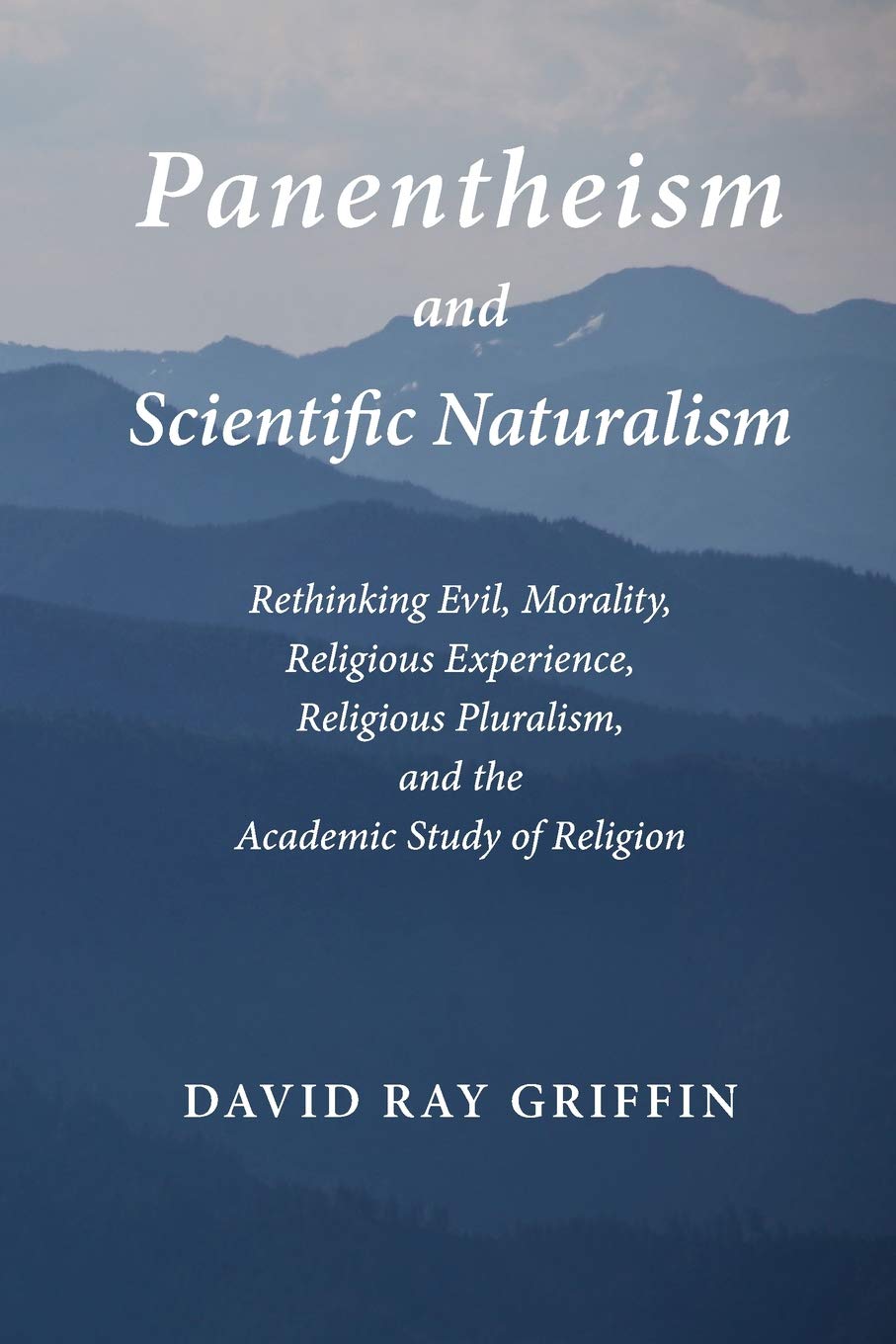
Panentheism and Scientific Naturalism: Rethinking Evil, Morality, Religious Experience, Religious Pluralism, and the Academic Study of Religion
David Ray Griffin
Process Century Press
2014
Can scientific naturalism, according to which there are no interruptions of the normal cause-effect relations, be compatible with divine activity, religious experience, and moral realism? Leading process philosopher of religion David Ray Griffin argues that panentheism provides the conceptual framework to overcome the perennial conflicts between these views, with important implications for religious pluralism, the problem of evil, and the academic study of religion. Panentheism–God as the soul of the world–explains how theism can be fully natural while still portraying God as distinct from and more than the world. Griffin’s Panentheism and Scientific Naturalism is an essential source for philosophers of religion and others seeking to reconcile faith with science and Christianity with other religions.
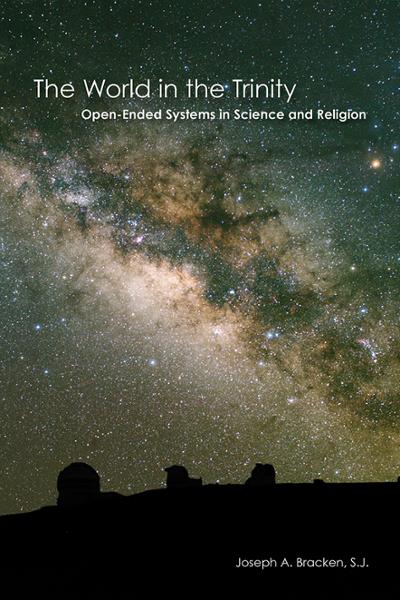
The World in the Trinity: Open-Ended Systems in Science and Religion
Joseph A. Bracken, S.J.
Fortress Press
2014
Joseph A. Bracken argues that the failure of theology and science to generate cohesion is the lack of an integrated system of interpretation of the Christian faith that consciously accords with the insights and discoveries of contemporary science. In The World in the Trinity, Bracken utilizes the language and conceptual structures of systems theory as a philosophical and scientific grammar to show traditional Christian beliefs in a new light that is accessible and rationally plausible to a contemporary, scientifically influenced society. This account opens new possibilities for rethinking the God-world relationship, the Trinity, incarnation, creation, and eschatology within the context of a broader ecological and cosmological system. In re-describing these articles constitutive of Christian belief, the author is conscious of the vital importance of retaining the inherent power and meaning of these concepts. This volume freshly retrieves pivotal themes and concepts constitutive of the Christian tradition in a conscious rapprochement with current scientific understandings of nature.
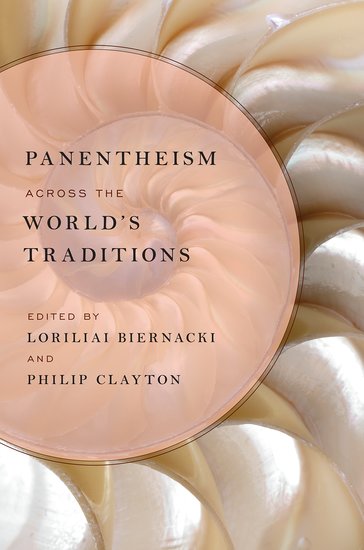
Panentheism across the World's Traditions
Loriliai Biernacki, Philip Clayton
Oxford University Press
2013
Not to be confused with pantheism–the ancient Greek notion that God is everywhere, an animistic force in rocks and trees–the concept of panentheism suggests that God is both in the world, immanent, and also beyond the confines of mere matter, transcendent. One of the fundamental premises of this collection of essays is that panentheism, despite being unlabeled until the nineteenth century, is not merely a modern Western invention. The contributors examine a number of the world’s established and ancient religious traditions-Christianity, Hinduism, Buddhism, Judaism, and others-to draw out the panentheistic dimensions of these traditions and the possibilities they suggest. Panentheism is not only an esoteric, potentially heretical, and deeply mystical vision of the world’s great religious pasts; it is also a key feature of contemporary global spirituality. As this volume demonstrates, the metaphors and practices associated with modern panentheism speak powerfully to the realities of the evolving human species and its evolving technological world. Panentheism’s enticingly heretical vision of the relationship between the divine and matter has historically been denied a serious place in scholarship. As Panentheism across the World’s Traditions shows, the dynamism between matter and spirit that panentheism offers has had a profound influence in the modern world.
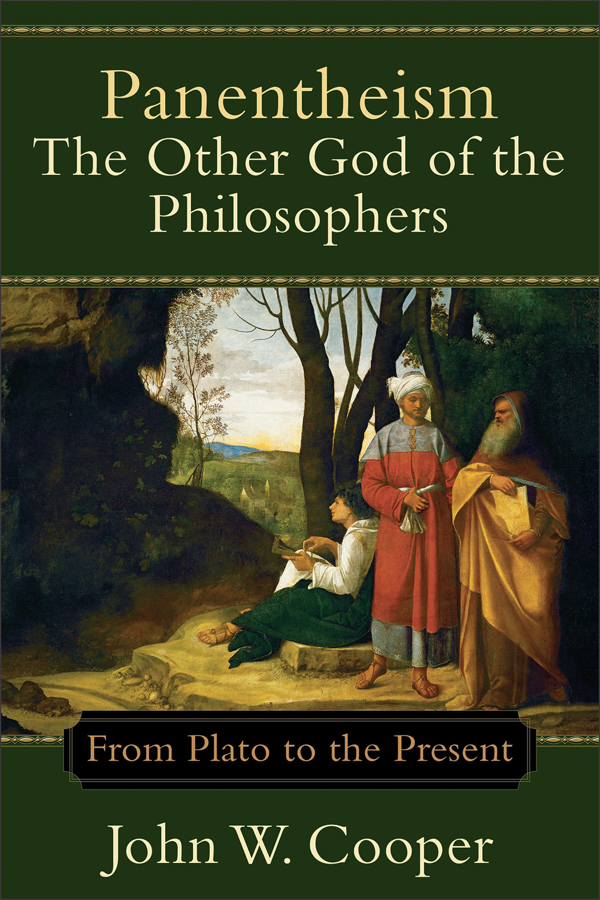
Panentheism-The Other God of the Philosophers: From Plato to the Present
John W. Cooper
Baker Academic
2006
The God of classical theism is often referred to as “the God of the philosophers.” Today, however, the contemporary theological landscape has shifted in the direction of “the other god of the philosophers”: panentheism. This intricate and complex worldview literally means that “all is in God.” While panentheism is not a new theological system, it has experienced a renaissance, especially among thinkers who study the intersection of science and religion. Philosopher and theologian John Cooper’s Panentheism—The Other God of the Philosophers is the first text of its kind written in English. The author traces the origin and development of panentheism from Plotinus to Alfred North Whitehead and beyond. Furthermore, he discusses how panentheism has influenced liberation, feminist, and ecological theologies. The concluding chapter offers a judicious analysis of panentheism, as Cooper explains his commitment to a modified classical theism over panentheism. The book will be required reading for upper-level college courses as well as advanced seminary and graduate students.
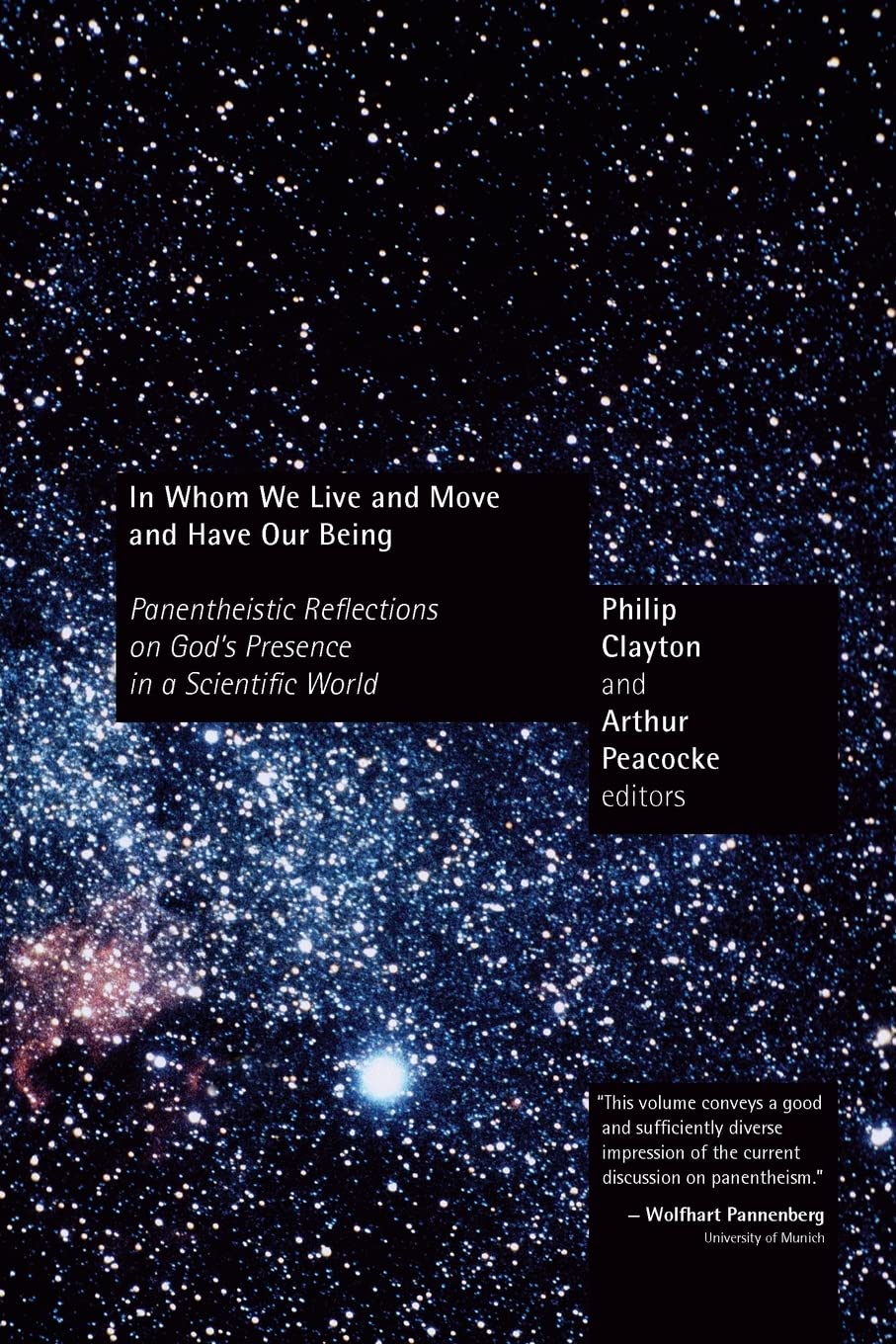
In Whom We Live and Move and Have Our Being; Panentheistic Reflections on God's Presence in a Scientific World
Philip Clayton, Arthur Peacock
Eerdmans
2004
Recent years have seen an explosion of interest in the doctrine of panentheism–the belief that the world is contained within the Divine, although God is also more than the world. Here for the first time leading scientists and theologians meet to debate the merits of this compelling new understanding of the God-world relation. Atheist and theist, Eastern and Western, conservative and liberal, modern and postmodern, physicist and biologist, Orthodox and Protestant–the authors explore the tensions between traditional views of God and contemporary science and ask whether panentheism provides a more credible account of divine action for the current age. Their responses, which vary from deeply appreciative to sharply critical, are preceded by an overview of the history and key tenets of panentheism and followed by a concluding evaluation and synthesis.
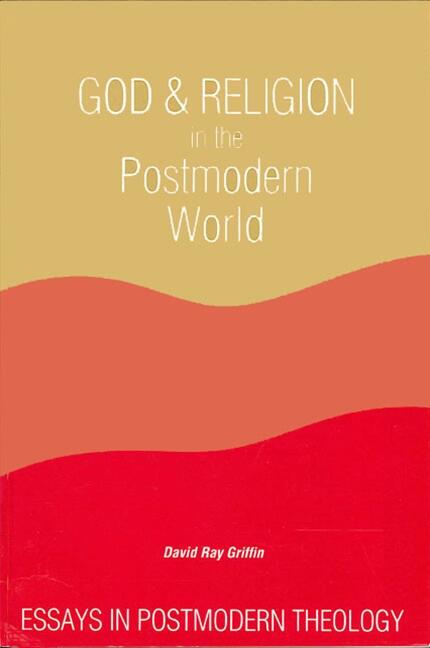
God and Religion in the Postmodern World: Essays in Postmodern Theology
David Ray Griffin
SUNY Press
1988
The naturalistic theism presented in this book is addressed to readers who have found liberal theology empty or who believe that one cannot be religious and fully rational and empirical at the same time. Griffin shows that the postmodern view is more empirical and rational than that of late modern materialism. This is not a return to early modern dualistic supernaturalism. The mechanism and sensationalism of Descartes and Newton precluded a real union of religion and science. Griffin’s postmodernism offers a deeply religious and fully scientific theology, providing a new basis for spiritual discipline and for a pacific mortality that could reverse the militarism of modernity. Griffin proposes a revisionary, constructive postmodern theology challenging the deconstructive philosophy that calls itself postmodern and leads to relativism and nihilism.
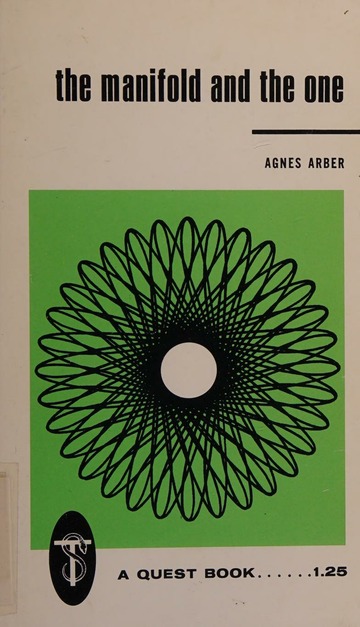
Botanist and historian of natural sciences, Agnes Arber, draws upon ancient and medieval sources to explore the relationship of the Manifold and the One, or the particular and the universal. By drawing upon past religious and contemplative thinkers from both East and West, as well as poets and metaphysicians, Arber explores what she identifies as “the inner meaning of the problem of the One and the Manifold.”
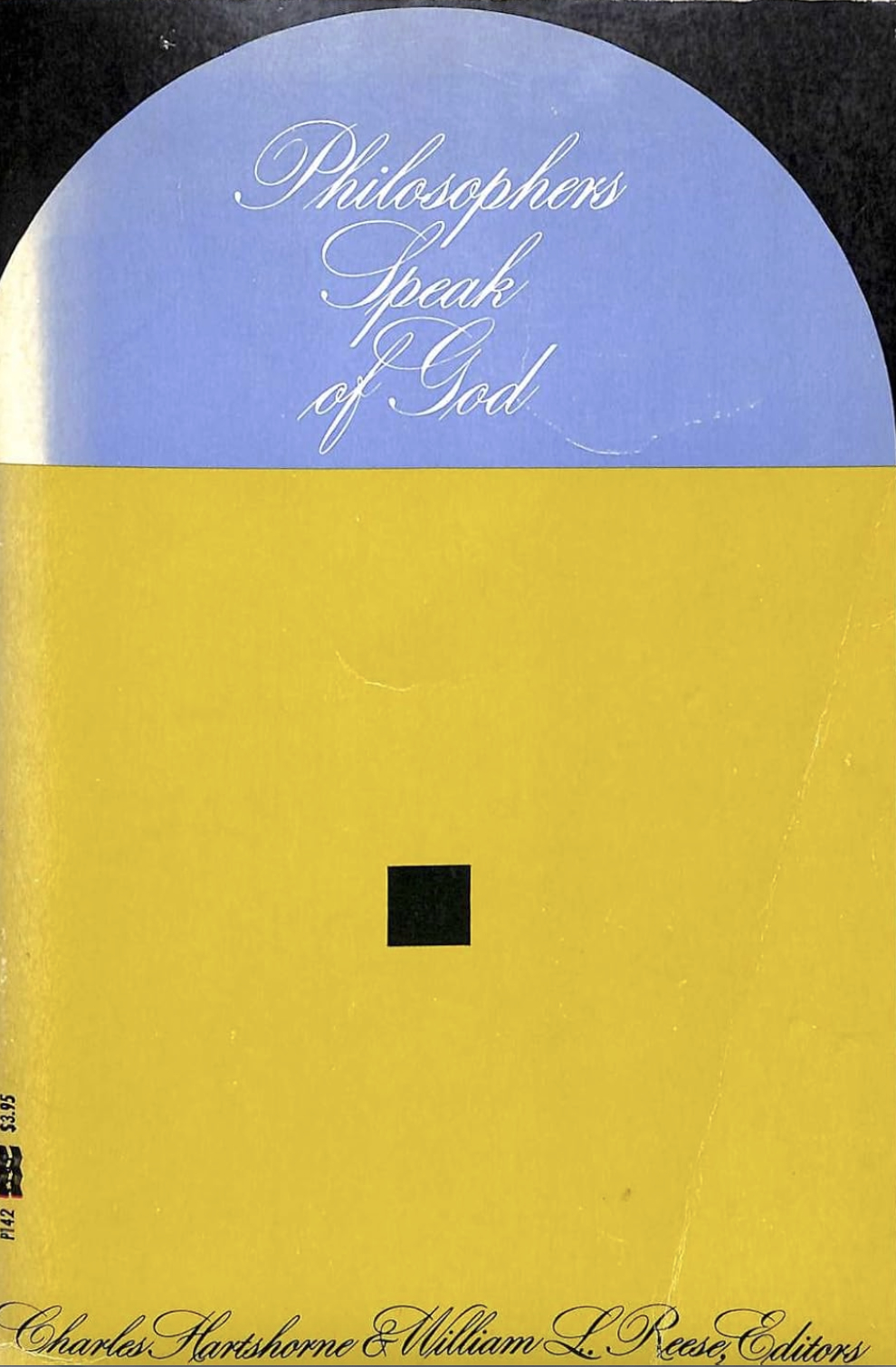
This wide-ranging anthology of philosophical writings on the concept of God presents a systematic overview of the chief conceptions of deity as well as skeptical and atheistic critiques of theological ideas. The selections cover key philosophic developments in this subject area from ancient times to modern in both the East and West. Editors Hartshorne and Reese-two of the most highly respected scholars in the philosophy of religion-have not only selected many arresting passages from the world’s great thinkers but have also analyzed and evaluated the underlying ideas, showing how they fit into major, overarching systems of thought. Throughout their presentation the editors analyze and contrast theistic, atheistic, pantheistic, and panentheistic systems of thought. Philosophers Speak of God is a richly varied selection of high-quality writing on a perennial subject that will provide the serious student a thorough foundation in the philosophy of religion.
Photo Credit: Victor Moragriega/Unsplash